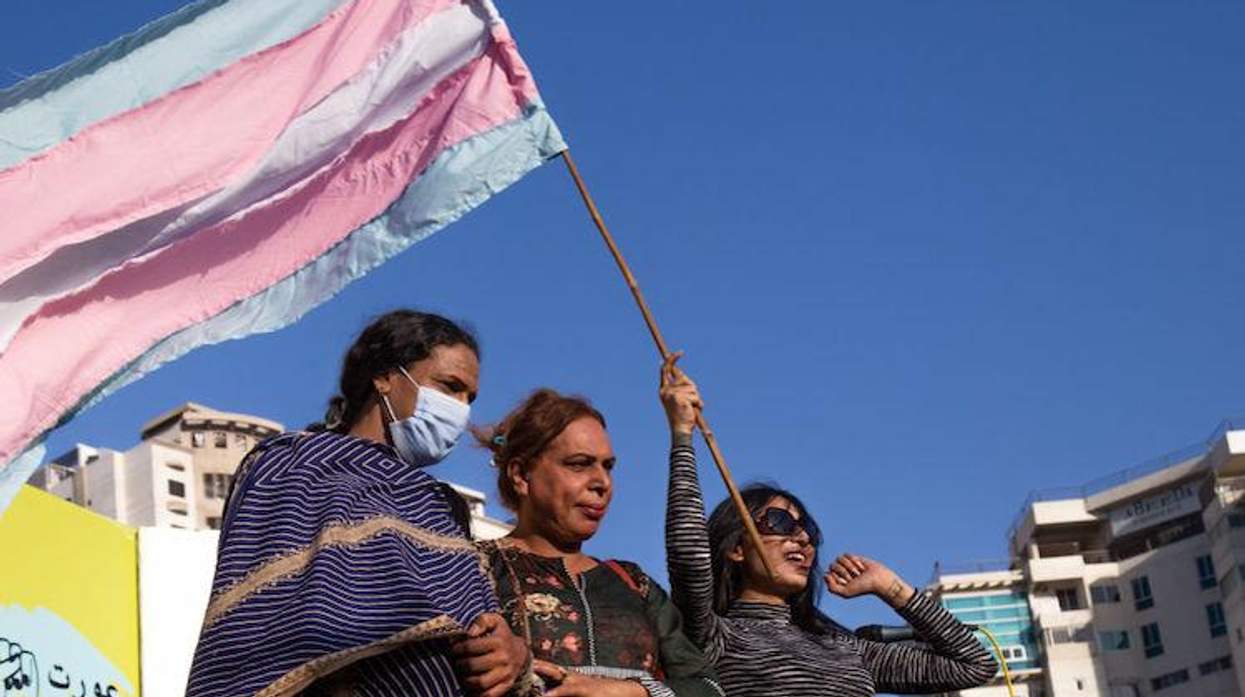Pakistani lawmakers passed a landmark transgender rights law in 2018, but some are now arguing that the law contradicts Islamic teachings about gender identity.
Transgender people in Pakistan can change their gender identity on previously issued government documents according to how they perceive it, as outlined in the Transgender Persons (Protection of Rights) Act.
Some criticize the law's provision allowing one to change gender as being un-Islamic and opening the door to same-sex marriage, which is currently illegal. Trans rights activists, however, argue that the misinformed debate against the law is causing further harm to the transgender community.
Senator Fawzia Arshad of Pakistan Tehreek-e-Insaaf (PTI) is pushing a new bill that would define transgender people according to the law as those who "keep one hole for urination," Vice reports.
The previous bill already has a strange definition of a transgender person, since it not only defines a transgender person as someone whose gender identity is different than their gender assigned at birth, but someone who has both male and female sex characteristics --that is, someone who is intersex.
This new proposal, the news site notes, represents rising dissent and misinformation campaigns targeting the laws protecting trans people. These campaigns often go in line with these politicians' religious views on gender and sex.
"While Arshad's awkwardly-worded proposal has bemused many, making some wonder if she knows the difference between a vagina and a urethra, there's also a larger concern over the direction this movement is taking," Vice writes.
Only last week another senator said that trans people were "disgusting."
There are some trans rights activists who say Pakistan's persecution of homosexuality is to blame for increased transphobia, including several murders of trans women in recent weeks, according to VOA. The activists argue that transgender people and LGB people should not be linked.
While opponents of the trans rights law, including Arshad, argue that it could potentially protect homosexuality, Human Rights Watch points out that homosexuality is illegal in Pakistan.
Twitter hashtags such as "#amendTransAct" and "#takeBackVulgarBill" have been trending recently in the country.
"Fawzia Arshad's proposal reflects how much these politicians don't know about our communities. Who are they to talk about our rights?" Shahzadi Rai, a trans rights activist, told Vice. "They're trying to snatch our constitutional empowerment, even after this law was created with everyone's agreements."
Rai told the outlet, "We will not let them take away our rights. We will fight back."
In 2012, the country's top court ruled that trans people had the same rights as all other citizens and added a "third gender" category to national identification cards.
Transgender people are now guaranteed a share in inheritance as part of the 2018 legislation, which explicitly prohibits discrimination against them in educational institutions, workplaces, and health care.
















Charlie Kirk DID say stoning gay people was the 'perfect law' — and these other heinous quotes
These are some of his worst comments about LGBTQ+ people made by Charlie Kirk.